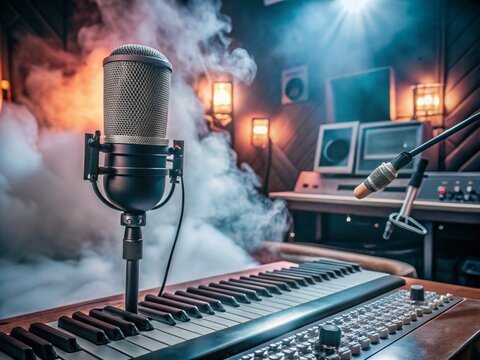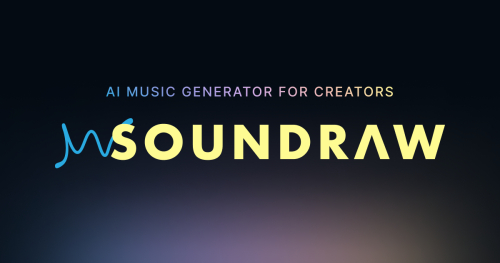The Future of Music: How AI is Reshaping the Industry
Discover how AI is revolutionizing the music industry, from AI-powered music creation and production tools to personalized listening experiences and virtual concerts. Explore the future of music and what it means for artists and listeners.

As technology continues to evolve, Artificial Intelligence (AI) is revolutionizing every facet of the music industry. From composition and production to distribution and listening experiences, AI is unlocking possibilities that once seemed like science fiction. Whether you’re a music creator, listener, or industry professional, the future of music is being shaped by AI in exciting and sometimes surprising ways.
Let’s explore how AI is influencing the future of music and what this means for the industry.
1. AI-Powered Music Creation
Composing with AI Tools
AI is no longer just a tool for automation; it's now a creative partner. Platforms like AIVA, Amper Music, and OpenAI’s MuseNet can generate melodies, harmonies, and entire compositions in seconds. These AI-powered tools can assist songwriters with everything from creating chord progressions to full orchestral arrangements.
- Benefits:
- Overcome creative blocks.
- Experiment with different styles and genres.
- Generate music quickly for commercial use, video games, and films.
Example:
The AI composer AIVA has been trained on classical works and can produce compositions in various styles. Artists and creators are using AIVA to blend traditional techniques with modern innovation.
2. AI in Music Production
Smart Mixing and Mastering Tools
AI-powered tools like LANDR and iZotope Ozone help producers achieve professional-quality sound. These platforms analyze your tracks and apply intelligent mixing and mastering, saving time and enhancing audio quality.
- Benefits:
- Faster production workflows.
- Professional sound quality without expensive studio time.
- Adaptive to different genres and styles.
Example:
LANDR’s AI mastering service has democratized high-quality music production, making it accessible to independent artists who may not have access to professional studios.
3. Personalized Listening Experiences
AI-Driven Recommendations
Music streaming platforms like Spotify, Apple Music, and AudiaBox rely on AI algorithms to personalize your listening experience. These AI engines analyze your listening habits to recommend songs, albums, and playlists tailored to your tastes.
- Benefits:
- Discover new music effortlessly.
- Curated playlists that evolve with your preferences.
- Enhanced user engagement and satisfaction.
Example:
Spotify’s Discover Weekly uses AI to analyze billions of data points to deliver personalized playlists every Monday, keeping listeners engaged and excited.
4. AI in Live Performances and Virtual Concerts
Enhanced Live Shows
AI is making live performances more immersive with real-time visualizations, effects, and adaptive lighting. Virtual reality (VR) concerts, driven by AI, are becoming more popular, allowing fans to experience live music without physical limitations.
- Benefits:
- Accessible live music experiences.
- Enhanced visual effects synchronized with music.
- Interactive virtual venues.
Example:
Artists like Travis Scott and Lil Nas X have hosted AI-driven virtual concerts on platforms like Fortnite, attracting millions of viewers and redefining live performance experiences.
5. Ethical and Creative Challenges
While AI offers many opportunities, it also raises important questions:
- Creativity vs. Automation: Will AI replace human creativity, or will it enhance it?
- Copyright Issues: Who owns the rights to AI-generated music?
- Authenticity: Can AI-generated music evoke the same emotional response as human-created works?
These challenges are sparking discussions about the balance between technology and human artistry. The future will likely involve collaboration between humans and AI, where technology supports creativity rather than replacing it.
The Road Ahead
AI is here to stay, and its impact on music is only beginning. As AI technology continues to develop, we can expect even more sophisticated tools that will change how we create, share, and experience music.
- For Artists: AI can be a powerful collaborator, helping generate ideas, streamline workflows, and explore new sounds.
- For Listeners: AI ensures personalized, ever-evolving listening experiences tailored to your tastes.
- For the Industry: AI will shape new business models, distribution methods, and performance experiences.
Stay Tuned with AudiaBox
At AudiaBox.com, we’re committed to exploring the intersection of technology and music. As AI continues to shape the future of music, we’ll keep you updated on the latest trends, tools, and insights.
What are your thoughts on AI in music? Are you excited or skeptical about these changes? Share your thoughts in the comments below!
What's Your Reaction?







Unlock AudiaBox Pro
Upgrade to AudiaBox Pro and enjoy exclusive features, premium tools, and the best music streaming experience.
Join AudiaBox Pro – Upgrade NowUnlock AudiaBox Pro
Upgrade to AudiaBox Pro and enjoy exclusive features, premium tools, and the best music streaming experience.
Join AudiaBox Pro – Upgrade Now










